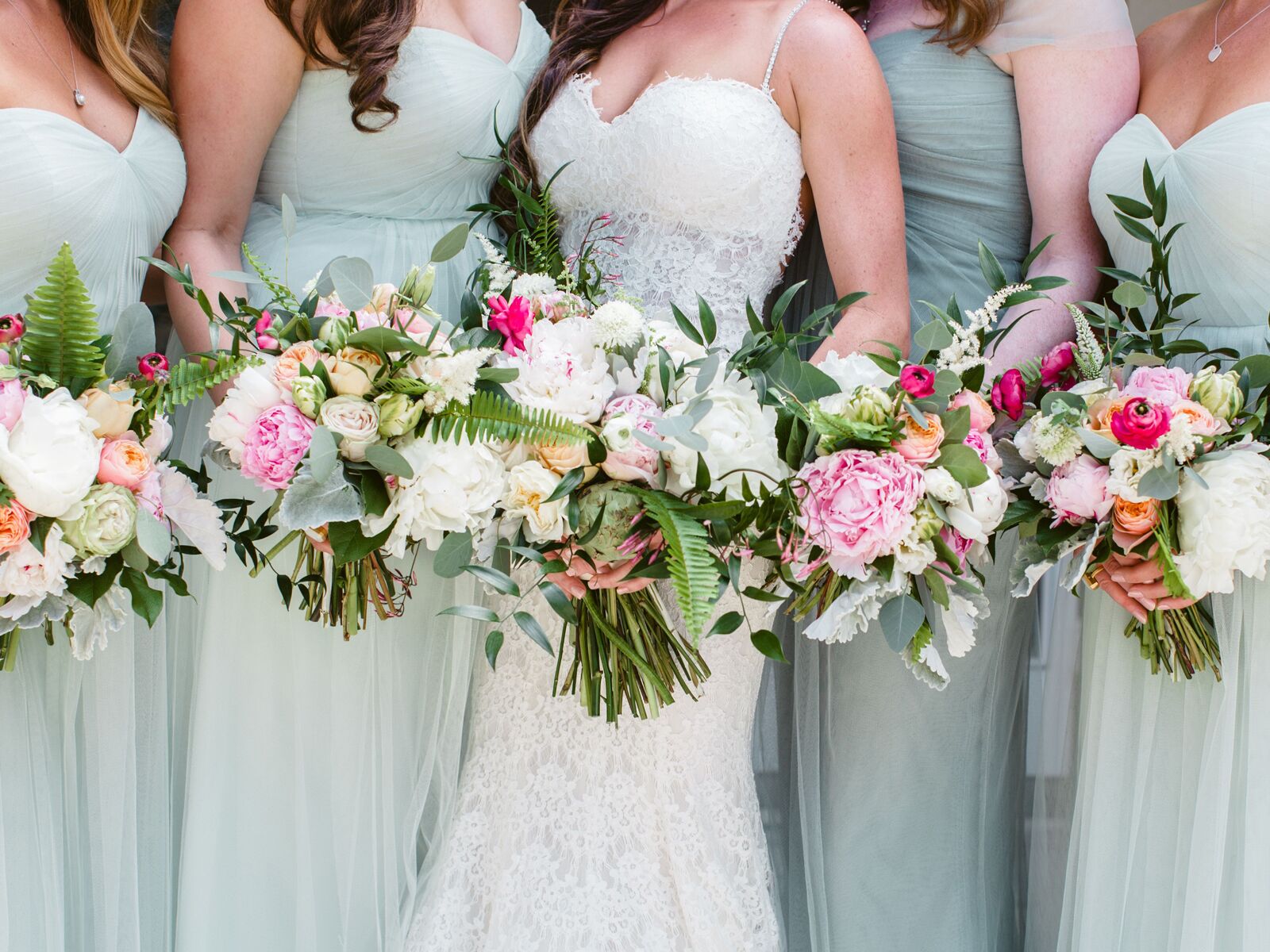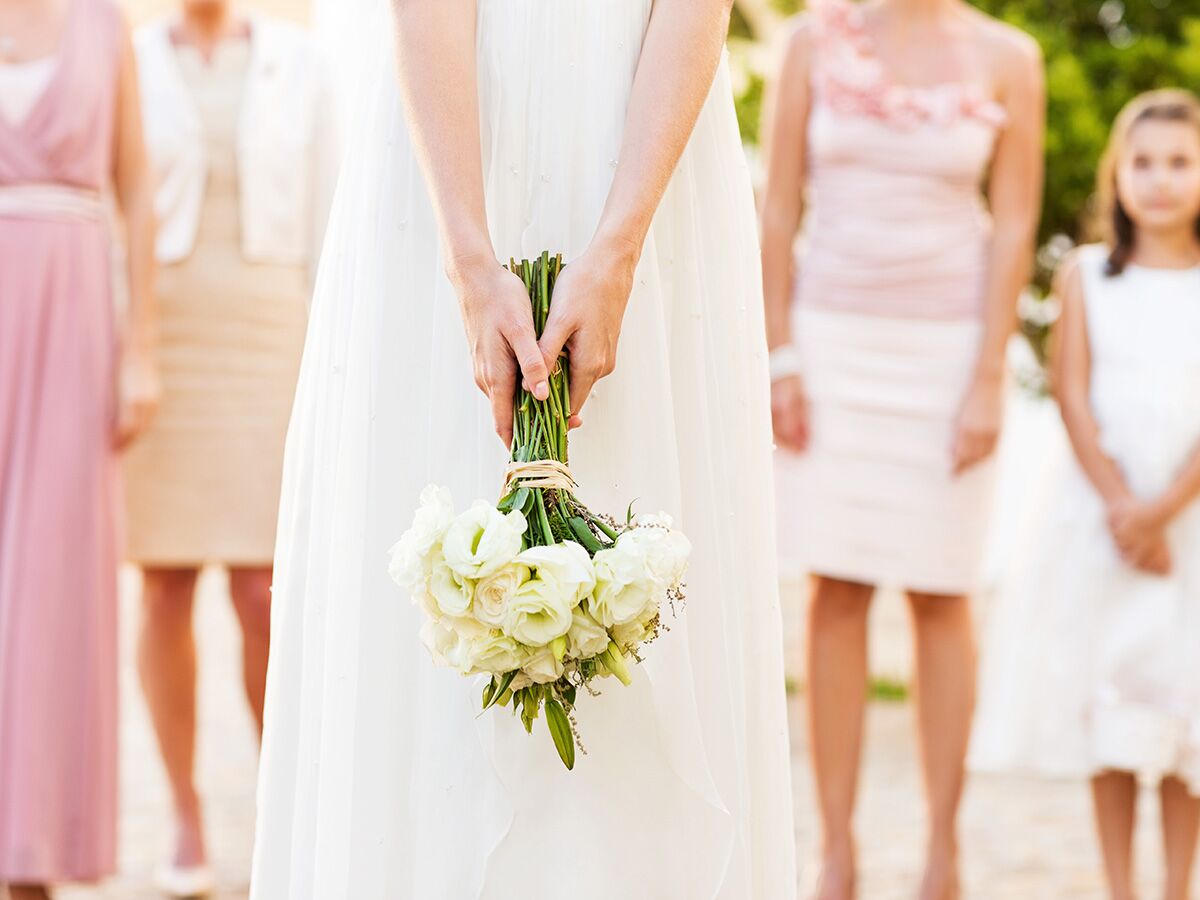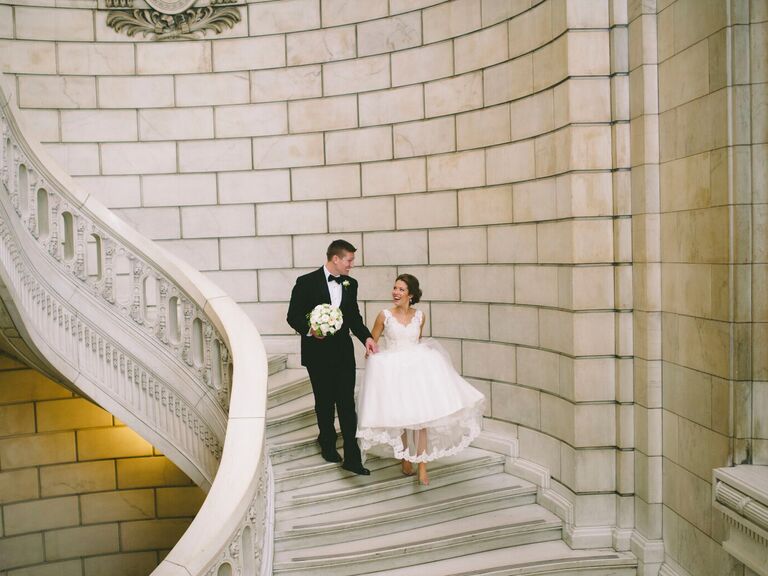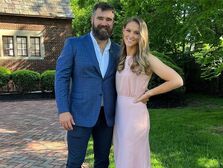How to Get Legally Married in Ohio and Plan Your OH Wedding
Your wedding day is undoubtedly one of the best days of your life, but the logistical side of things, like obtaining a marriage license, can add stress to your wedding planning process. There are steps you'll have to take to legally obtain a marriage license in the state of Ohio. Fortunately, the Ohio marriage license process is relatively straightforward once you know the basics (which we've included for you here!). It's also important to know how to change your name in Ohio, as the process is slightly different than in other states. Get ready to start planning your big day in the Buckeye State with this rundown of the Ohio marriage license process.
How to Get Married in Ohio
The legal and logistical process of getting married in Ohio isn't too complicated, but following the steps in order is essential. Here's what you need to know when it comes to the legal requirements of and how to get married in OH.
Is there a waiting period to get married in Ohio?
If you're over 18 years of age, there's no waiting period to get married in Ohio. Your marriage license is good for 60 days from the date of issuance.
What are the legal requirements to get married in Ohio?
In the state of Ohio, the minimum age to get married is 17 years old. If you're 17, you have to obtain judicial consent of the Juvenile Court, and you and your future spouse must be no more than four years apart in age. Applicants under 18 years of age may also need to receive marriage counseling prior to issuance.
If you're over 18 years of age, you can get married to any other adult of legal age with proper proof of identification and other additional information (more on that in the next section). But there's one thing we should mention here: parties seeking to marry one another can't be nearer of kin than second cousins, so keep that in mind.
What's considered a common law marriage in Ohio?
The state of OH previously recognized common law marriage, but in 1991 by statute, the state decided to no longer recognize common law marriage. Common law marriages that began before October 10, 1991, are still honored by the state unless they've been terminated by divorce, death, annulment or dissolution.
Ohio Marriage License 101
If you and your future spouse have decided to tie the knot in Ohio and confirmed that you can legally get married in the state, you'll need to apply for your marriage license. Here's everything you need to know about the marriage license application process in OH.
What do you need to get a marriage license in Ohio?
In addition to the application itself, both parties will need to present a readable and valid government-issued photo ID (i.e., driver's license, state ID, passport, visa, etc.) You'll also want to know your social security number, too, for identification purposes. That doesn't mean you need to have your card with you, but you'll want to make sure you know your social security number by heart.
To apply for your marriage license, you and your future spouse will have to show up in person together at the Probate Court. Each county has a Probate Court, and residency is important. Ohio residents can stick to the county they already know and reside in. If you're state residents of Ohio, you'll need to apply in your county of residence or your soon-to-be spouse's county of residence. If you're both nonresidents, you'll need to apply in the county where you plan to have your wedding ceremony. If you're not a U.S. citizen, you can still get married in OH with all of the proper documentation (i.e., passport and visa).
If you or your spouse were legally in a prior marriage, you'll need to provide a certified copy of the divorce decree at the time of application. If a previous marriage ended due to the death of a spouse, a certified copy of the death certificate will need to be provided.



What does an Ohio marriage license cost?
An Ohio marriage license might cost you anywhere from $36 to $76, depending on the county you're in. Your Probate Court might accept payment in the form of cash, money order, cashier's check, or credit cards (American Express, Discover, Mastercard and Visa) with processing fees. Check with your desired Probate Court before your appointment on the preferred and accepted methods of payment.
How long does it take to get a marriage license in Ohio?
It takes approximately 20 to 30 minutes to complete the marriage license application process. Since there isn't a waiting period, you can get married as soon as you have your marriage license in hand (how exciting!)
Can you apply for a marriage license online in Ohio?
The rules around applying for a marriage license online in Ohio are tricky, but some counties accept online applications while others prefer in-person appointments. Certain counties require the completion of an online application prior to your visit to the Probate Court, so be sure to read the rules for your county clearly.
How do you get a copy of your Ohio marriage license?
In OH, certified copies of your marriage license can only be obtained from the county in which your marriage was recorded. Your officiant is responsible for returning paperwork back to the Probate Court after your wedding ceremony. Each Probate Court manages their own online contact pages, so you can reach out directly with any questions and in some cases, request certified copies online. Know that certified copies often come at a cost, so be prepared to pay fees. For example, Franklin County charges $2 per certified copy and an additional service fee of $1 per transaction, to be paid by credit or debit card.
How to Plan an Ohio Wedding
Now that you know how to obtain your Ohio marriage license, it's time to plan your big day! If you aren't sure where to start, don't worry; we've got you covered.
The Different Cities and Areas to Consider for an Ohio Wedding
One of the best parts about choosing the state of Ohio for your big day is that there are a variety of locations and options to choose from. You can explore more well-known cities like Cleveland, Cincinnati and Columbus.
If you're looking for a lakeside location, Cleveland is the perfect option nestled on the shores of Lake Erie. In this area you'll find beautiful beachfront and skyline venues to choose from. Cincinnati is known for its architecture and boasts plenty of venues with old-world charm. Columbus, the state capital and largest city in OH, offers elegant and unforgettable venues both indoors and outdoors for your wedding ceremony.
What to Look for in an Ohio Wedding Venue
With any wedding venue, you want to look for the elements that are most important to you. Maybe you're set on a lakeside outdoor wedding, or you're hoping to find an elegant rustic venue for your big day—whatever the case may be, you'll want to prepare your list of non-negotiables when scouting Ohio wedding venues. Fear not, your options are endless!
How to Find Ohio Wedding Vendors
Looking for vendors can feel overwhelming, especially when you have so many options to choose from but aren't sure where to start. Dive into your research by exploring The Knot Marketplace for all of your wedding day needs.
The Best Times of Year to Have an Ohio Wedding for Good Weather
There are a lot of variables to consider when thinking about choosing your wedding date, but as a general rule of thumb, late spring into early summer and early fall are the best times of year to plan your wedding ceremony in Central Ohio. That means May, June, September and October are all great options (keep in mind that two holiday weekends fall within these timeframes too, which can add additional costs to your big day.)





















